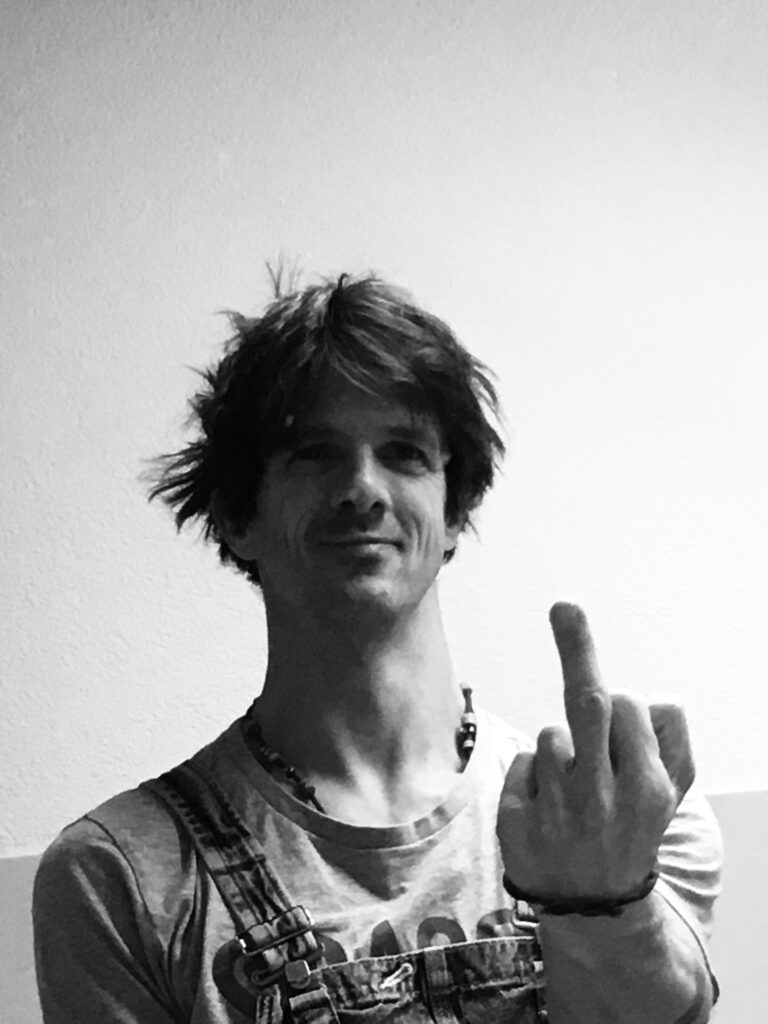Through genuine and succinct prose, Pascal Beer establishes a distinct voice that will resonate will the era of people defined by the advent of nuclear weaponry and the fallout that we are subsiquently forced to live with. The term “Atomkinder” is a German word which translates to “children of the atom” in English. The term is often used in the context of nuclear physics or atomic energy to refer to the consequences or implications of atomic power, particularly in terms of its impact on future generations or the inheritors of nuclear technology. It also evokes themes related to nuclear proliferation, nuclear accidents, or the potential long-term effects of nuclear radiation on human health and the environment. Additionally, “Atomkinder” is often used metaphorically to symbolize the offspring or descendants of the atomic age, who inherit both the benefits and risks associated with nuclear technology.
While the title of this collection of work is somewhat dark, it is appropriate, if not poignantly symbolic of the world Pascal Beer is attempting to dismantle and make sense of. Beyond notions of war and peace, Beer covers topics such as life lessons from childhood, bullying, dating, art, pedophilia, rape, and murder not to mention his titillating sex-capades told with raw, unflinching honesty.
We are the generation of the bomb, we are the atomkinder and the bomb went off inside of us and left nothing behind but a wasteland.
-Pascal Beer from We Atomkinder
The collection opens with a humorous and touching prose about a friendship, A True Friend stands as a poignant work encapsulating the essence of an unconventional, yet deeply meaningful friendship between two elementary school boys.
What sets this friendship apart is its unconventional nature. Unlike typical friendships characterized by shared interests or intimate conversations, the bond between the two boys is built on playful banter and humorous insults exchanged during brief, weekly encounters during school. Despite never engaging in conventional gestures of friendship like handshakes or inquiries about each other’s well-being, their connection is palpable. Moreover, this prose subtly explores themes of empathy and concern, setting the tone for the pages to follow. Pascal Beer’s authenticity lies in its portrayal of friendship in its purest form, devoid of societal norms or expectations. It celebrates the beauty of companionship found in unexpected places and the resilience of childhood bonds, a reminder of the profound impact that even the simplest of connections can have on our lives, leaving a lasting impression long after the final words are read.
The Monster is a noteworthy work that outlines the horrors of those who take advantage of our youth. Pedophilia is more than just a crime, it’s an epidemic in our culture, and as access to the internet, specifically the dark web, has become as easy as downloading some software and logging on, I’m certainly left wondering how it’s possible that we’ve allowed this deeply disturbing world to proliferate. In a very real way, the men who take themselves down this rabbit hole are rewarded by their peers, rewarded with more images, more video, not to mention the damage caused to an alarming number of children who will spend their entire lives trying to undo the harms done to them.
When his son turned ten, the monster
-Pascal Beer from Monster
started inviting other fathers to see his son. They paid the monster and fucked the son.
Perhaps the most profound takeaway from this collection lies in the fact that Beer takes ideas, thoughts, and situations, tipping them onto its head, exposing the darkness bubbling just below the surface. Many of these works should come with a trigger warning, yet if I were the editor, I would be reticent to add one because there is beauty in Beer’s exposition—after all these concepts that do exist and deserve, if nothing else, to be kept out in the light.
We had everything and we had nothing.
-Pascal Beer, City Of Love
I had goosebumps reading this body of work. A magnificent collection of works by a poet who has embraced the unthinkable and lays it all out before us, like a prince who has decided to expose the monarchy for all of its rhetoric and secrets. One can run from the horrors of this world but cannot hide, certainly not while Beer is around.
For more information about Pascal Beer, click here.

Review by Raymond Helkio for The Reading Salon.

